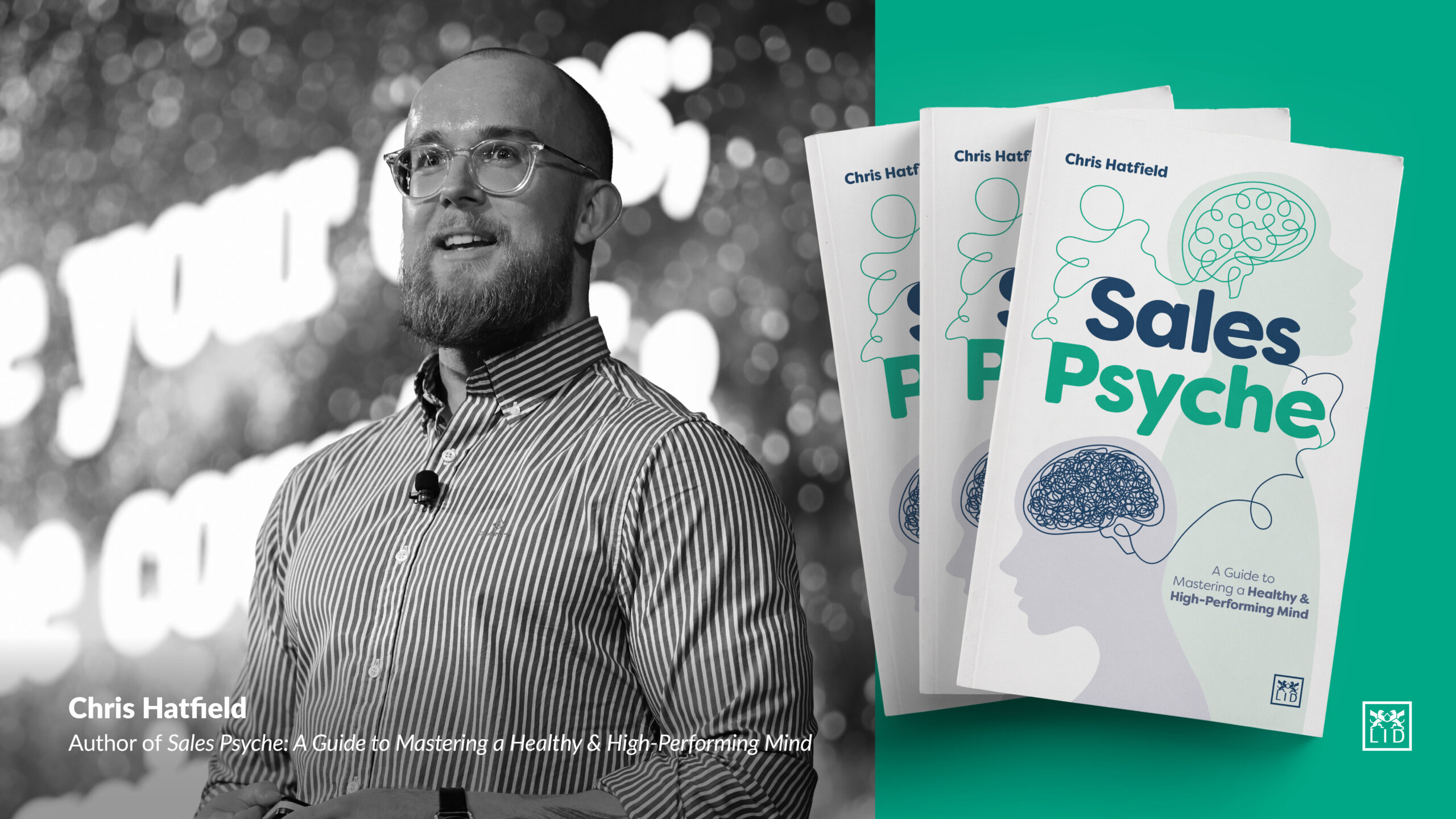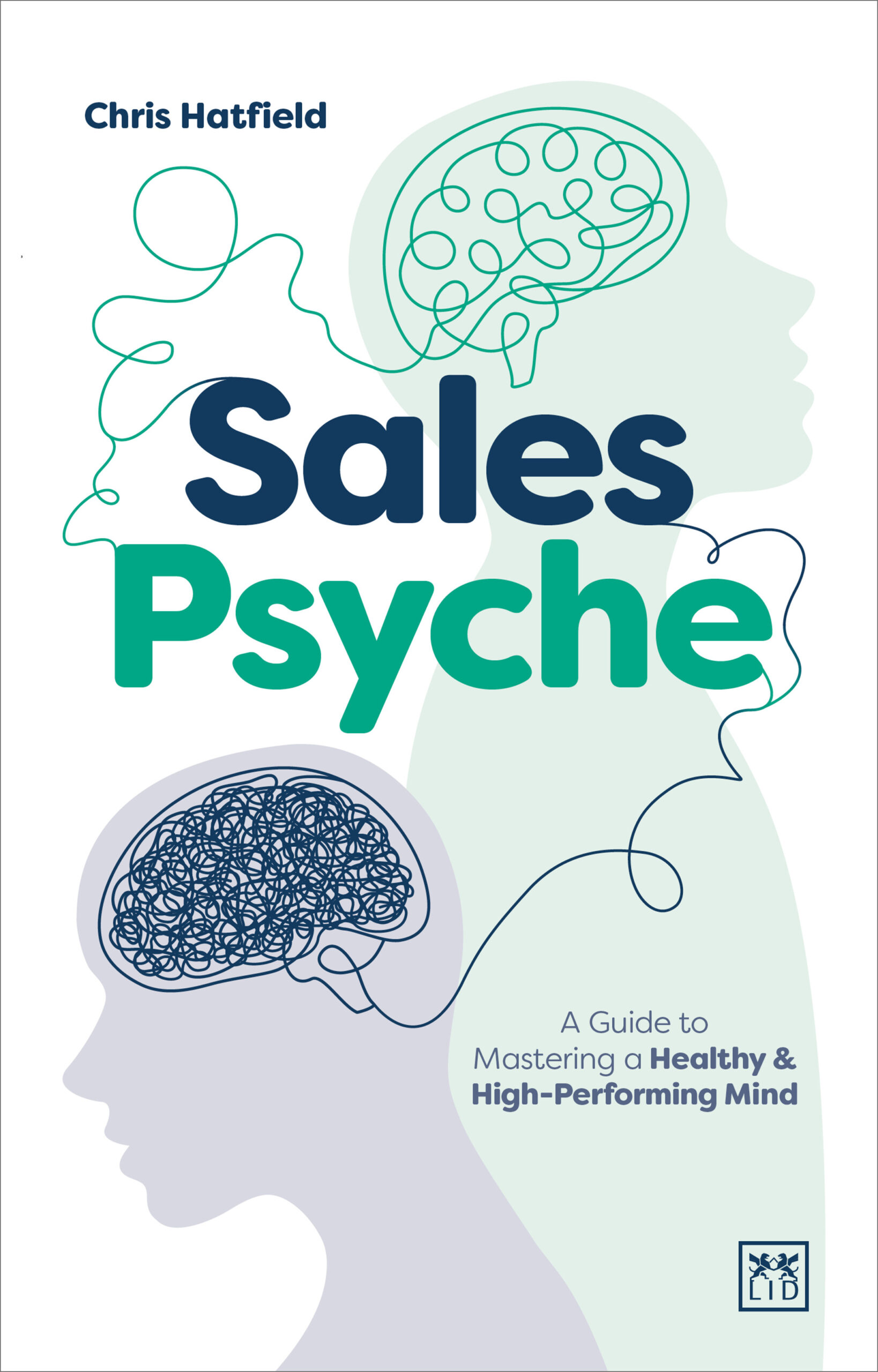|
Leveraging Imposter Syndrome in Sales with Chris Hatfield
Leveraging Imposter Syndrome in Sales

By Guest Contributor Chris Hatfield
Have you ever found yourself in a conversation with friends, each of you debating your ideal holiday destinations? You likely have strong opinions about what makes a great trip, and you’re able to easily differentiate your views from everyone else’s. The ability to separate your perspective from theirs is key in these discussions.
This same approach can help you manage your imposter syndrome.
Name Your Imposter
The first step in addressing imposter syndrome is to give it a name. Naming your imposter allows you to create some emotional and psychological distance from it, making it easier to deal with. When left unnamed, imposter syndrome can easily blend with your identity, making it difficult to separate your self-doubt from reality. By naming it, you can spot when those doubting or uncertain thoughts creep in and begin addressing them as something distinct from you.
For example, my imposter’s name is Christian. Christian shows up regularly, particularly before big presentations, sales pitches, or important meetings. The goal isn’t to make Christian disappear completely but to recognize when he appears and separate his thoughts from my own. By doing this, I can challenge those thoughts without letting them dictate my actions or derail my confidence.
Once you’ve named your imposter, treat it like a conversation with a colleague or friend. It’s a voice you can interact with and, most importantly, dismiss when needed. Doing this means you’re more focused on observing rather than judging your imposter. When we come from a place of judgement, we put more pressure on ourselves and become more stressed or anxious as a result.
Here are some examples of things I’ve found Christian thinking, and how I now reframe them.
| Initial judgmental statement | Reframed statement |
| ‘Why am I thinking negatively again about this pitch?’ | ‘I’m starting to think more about this pitch. Thanks for letting me know, Christian.’ |
| ‘What if they ask a question I don’t know how to answer?’ | ‘Thanks for the thought. I’ve got that covered already, Christian.’ |
Developing the habit of naming your imposter allows you to leverage it when necessary, while keeping it from defining your entire identity.
View Your Imposter as the Role of a Villain in a Film
Think of your favorite superhero or action movie. There’s always a villain—someone who creates conflict, tests the hero, and ultimately drives the hero’s growth. Without the villain, the story wouldn’t be as engaging, and the hero wouldn’t be forced to evolve.
Your imposter plays a similar role in your life. While it may feel like the villain in the moment, its presence challenges you to adapt, learn, and grow. This is how we can view our imposter — not as the villain, but as the role and change that a villain provokes in a film. Envision yourself as the hero of your own story, with your imposter appearing to test you, forcing you to adapt, learn and grow.
Think back on your proudest achievements. Chances are, those moments were fueled by overcoming obstacles and confronting your doubts. Your imposter likely played a role in driving your growth, just as the villain pushes the hero in the movies.
Without that internal challenge, you might not have reached the same level of personal or professional success. When viewed through this lens, your imposter syndrome can be seen as a catalyst for growth, not just an enemy to defeat.
Learning from Your Imposter
Reframing your imposter as a learning opportunity is key to leveraging it. Rather than seeing it as a roadblock, view it as a sign that you’re moving beyond what you’re familiar with and into new territory. The next time it appears, ask yourself, “What is this imposter trying to teach me?” It may be pointing out an area for improvement, or reminding you to acknowledge and celebrate the progress you’ve made.
For me, Christian has shown up at pivotal moments throughout my career, helping me recognize areas where I needed to improve or where I wasn’t giving myself enough credit. By listening to this voice but not letting it control my actions, I’ve been able to grow both personally and professionally.
This reframing allows you to interact with your imposter in a healthier way, encouraging self-reflection and resilience. Instead of constantly battling against it, you can learn to work with it, using it as a tool to fine-tune your skills and build your confidence.
| Situation | How my imposter benefited me |
| Nervous about public speaking |
|
| Working as a sales coach for a FinTech company |
|
| Rejected for a role as associate trainer |
|
| Thinking I’d be ‘found out’ before a big sales pitch |
|
Embrace Your Imposter as Part of Your Journey
The goal isn’t to eliminate your imposter but to gain the tools to overcome it when necessary. Just as in action films, the villain isn’t vanquished forever—there will always be new challenges and doubts to face. And that’s okay.
By equipping yourself with self-awareness and techniques to manage your imposter syndrome, you become your own biggest advocate. Understanding that the imposter may return during pivotal moments allows you to prepare, adapt, and grow each time.
And remember, even the best heroes need a good villain to keep the story interesting.
Your imposter syndrome isn’t your enemy—it’s a tool that can help you grow, improve, and succeed. By naming it, learning from it, and embracing its presence in your journey, you can become the hero of your own story.
ABOUT THE AUTHOR
Suggested Reading
 This book addresses unspoken challenges in sales, offering essential insights, stories and tools to unlock full potential in mind management and nurture success. From overcoming limiting beliefs and reframing stress to building resilience, leveraging imposter syndrome and combating burnout—the silent sales killer–the book stands as a go-to resource for any salesperson. In fact, Sales Psyche is more than a guide–it’s a comprehensive resource for any salesperson wanting to build a successful and sustainable career.
This book addresses unspoken challenges in sales, offering essential insights, stories and tools to unlock full potential in mind management and nurture success. From overcoming limiting beliefs and reframing stress to building resilience, leveraging imposter syndrome and combating burnout—the silent sales killer–the book stands as a go-to resource for any salesperson. In fact, Sales Psyche is more than a guide–it’s a comprehensive resource for any salesperson wanting to build a successful and sustainable career.

